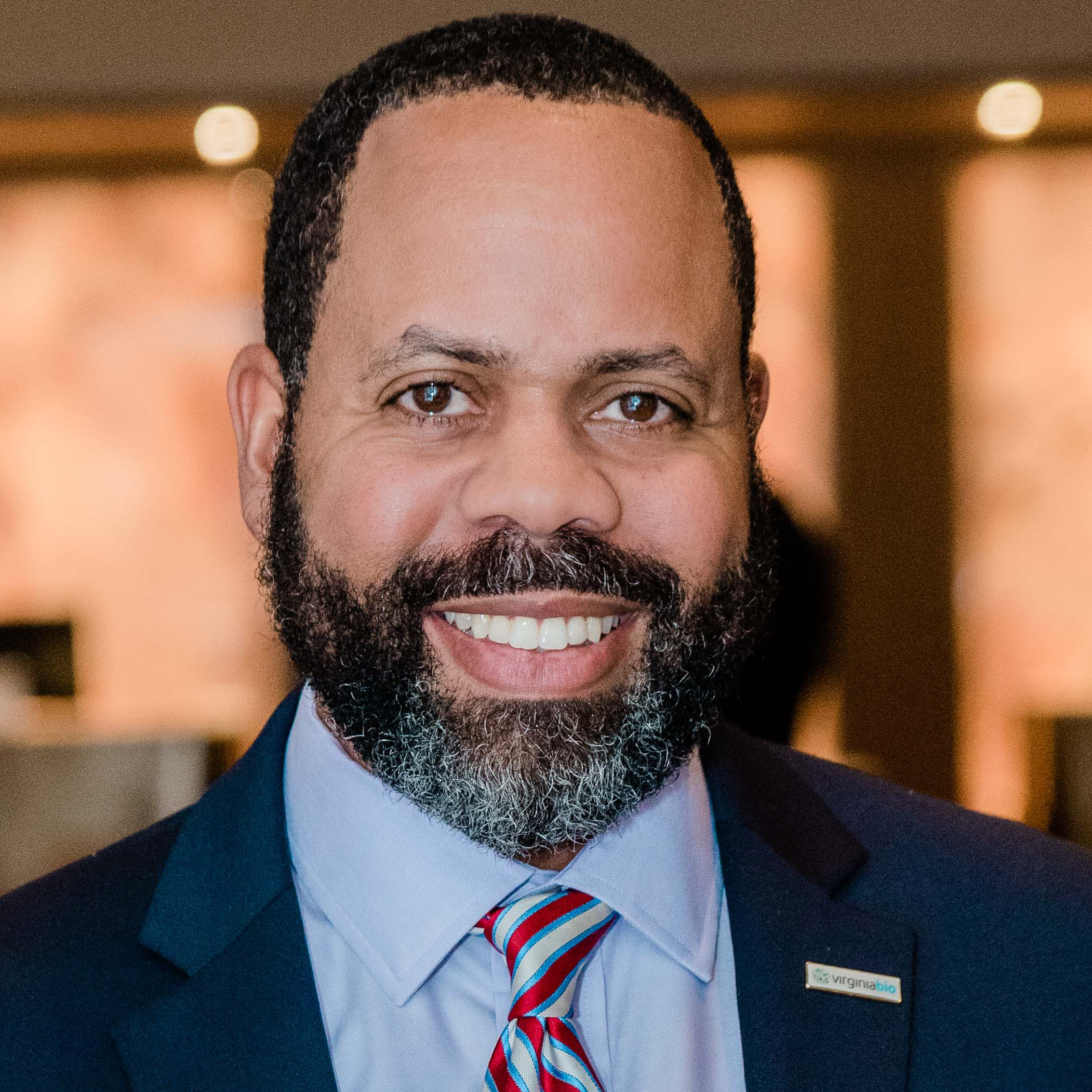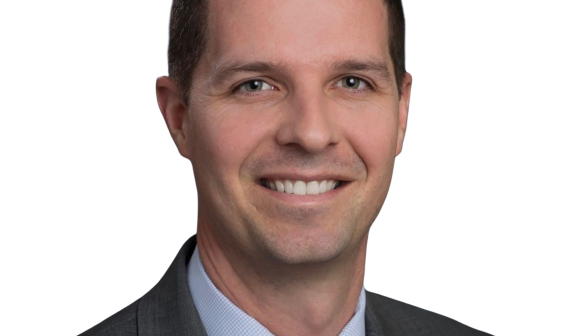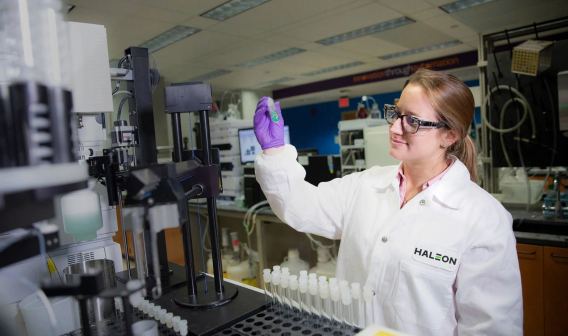Newby: One priority, which is pretty central to what we do and who we are, is to support the majority of our corporate members, small startups. Over 70% of our member companies are these small startups, and that reflects the majority of the industry nationwide. These companies have a lot of challenges — not just the science, which, of course, is a challenge in and unto itself — but the funding, and working with the FDA to meet those hurdles successfully. That’s a major goal at Virginia Bio: a real focused effort to help our small companies who will eventually become either medium-sized companies or even be acquired by larger companies, as is usually their life cycle.
We also aim to promote life sciences and business-friendly policies at state and federal levels. Most recently, it’s included advocating to the state to increase funding for the Catalyst grant we have in Virginia that supports partnerships between private-sector industries and research universities to spin out technologies.
It also includes advocating and educating legislators with respect to policies that are constantly being suggested for the industry, such as current discussions around prescription drug pricing and discussions around right to repair in the manufacturing space — things that could either positively help or negatively affect the biotech industry’s ability to grow and expand in Virginia.
Another major goal is what we’re trying to do with the new Build Virginia grant we recently received to strengthen the ecosystem by connecting it in more tangible ways under a program that we call Virginia Bio-Connect.
El Koubi: Let’s dive into Virginia Bio-Connect, the statewide industry hub that was recently announced. Tell us about this initiative’s vision.
Newby: We think it will be a game-changer in Virginia. We received a $3.2 million Growth and Opportunity Fund grant from the Commonwealth in December 2020. The goal is to more strongly stitch together our entire ecosystem.
Virginia is composed of many regions that each have their own unique biotech and bioscience focuses. For the most part, we know who they are and we talk to each other, but we’re not tied together very tightly. The vision is a more integrated statewide ecosystem — sharing events, job opportunities, and best practices.
We have three stated aims for Virginia Bio-Connect. Aim No.1 is to strengthen the life sciences industry generally. Our second aim is to attract and develop a diverse workforce. We have great need for highly talented, trained, and skilled individuals. The average salary in Virginia life sciences is about $80,000–85,000, which is fairly high compared with other industries, because of the particular skills needed.
We’re going to have an internship program to fill the pipeline. One hundred interns will be hired over this next summer to our biotech companies with funding from GO Virginia. We’re also putting together a young professionals network to create a “virtual watercooler” to let people know what’s happening in Virginia.
The third aim of Virginia Bio-Connect is to accelerate commercialization. We’re doing that by hiring life sciences mentors — or entrepreneurs-in-residence, as most people would know them — to be available virtually across the state for our small companies.
El Koubi: You’ve had a very interesting career with a wide range of experience. You’re a graduate of the United States Air Force Academy and you served our country with distinction as an Air Force officer. You’ve practiced law. You were the commissioner of the Virginia Department of Veterans Services. And now you lead Virginia Bio. How have those different experiences prepared you to lead Virginia Bio when life sciences are in the spotlight?
Newby: Virginia’s biotech industry has, for years, been a sleeping giant waiting to emerge. My arrival was fortuitous. Virginia Bio had great leaders who laid the path and organization for this association for me. And we had an industry poised for growth. I had military and state government leadership experience, as well as connections in the state and knowledge of the mechanics of state governance. I knew about the industry from my time doing biopharmaceutical work as a patent lawyer for about a decade.
All that enabled me to step in and help guide the industry on the upward and positive trajectory it was already on, anticipating it will continue to go even higher.
El Koubi: You had been on the job for less than a year when the COVID-19 pandemic hit. How did that major upheaval affect the work you’re doing?
Newby: I arrived in August 2019, and the pandemic hit a handful of months later, just as I was getting my sea legs underneath me. Similar to other associations, the most obvious direct effect was we couldn’t meet in person anymore. All of our events had to go virtual, which we did successfully.
The most important thing is it made our work more urgent. We had, and still have, lots of companies doing great things in the fight against the pandemic. Communication became a focus of Virginia Bio over the past 18–24 months, primarily to let the world know what we’re doing.
We had great companies involved in testing, vaccine development, therapeutics, and diagnostics. We even had companies who made strategic switches away from their core competencies to develop PPE to meet those needs. We had to let the world know all this, so we really switched our focus to the communications piece.
One thing the pandemic actually helped us with is advocacy. Prior to the pandemic, if you were not physically in a legislator’s office in D.C., communicating with policymakers was a little difficult. The pandemic gave us the opportunity throughout the past several months to have virtual town halls with our congressional delegation and several state legislators, putting them in direct contact with our members. It’s something we hadn’t been able to do before.
The pandemic has really shone a positive light on what we do as a biotech industry, not just in Virginia, but nationwide. It’s not hyperbole to say that the life sciences and biotech industry is saving the world right now. But for the great advancements in vaccines and therapeutics, we would be in a much different place.
The pandemic was challenging in Virginia, as it was everywhere else. But for our industry, it helped us get the word out about the good things that science can do for people.
El Koubi: The pharmaceutical manufacturing cluster in the Richmond and Petersburg regions has been a high-profile success for Virginia. What do you think the impact of these companies will be in how the life sciences develop across the Commonwealth?
Newby: The pandemic has highlighted America’s dependence upon foreign countries for its active pharmaceutical ingredients and for PPE supplies. This new cluster led by Phlow and AMPAC and Civica Rx is truly the start of the reshoring of domestic manufacturing capability here in America for pharmaceutical products.
It’s already positively affected the Virginia ecosystem by attracting a couple of startup companies that have partnered with that team down in Petersburg. We anticipate many more companies in related activities to be drawn to Virginia because of what they’re doing. When you get a $300 million-plus BARDA grant with the potential of being upwards of $800 million to start something in America that isn’t being done right now, it attracts a lot of attention and everyone benefits from it.
El Koubi: Taking a step back on all the activity here, what do you see as the attributes that make Virginia a strong location for life sciences companies?
Newby: Virginia is in a lot of regional partnerships. The BioHealth Capital Region is one — that’s a partnership between D.C., Maryland, and Virginia. The Southeast Life Sciences partnership among seven southeastern states is another.
I think the attribute that I’ve learned over the past couple years that makes Virginia a strong location for life sciences activity is, quite frankly, we’re not Boston. We’re not San Francisco. We’re not New York. We have the assets, but what we don’t have is the expense. We have the talent from our universities for workforce. We have research universities that can support companies as they try to solve real problems for public health. We have proximity to the FDA, NIH, CDC, and all the other important agencies in this space.
We have lab space and are building more, where Maryland is pretty much at capacity. It’s attractive to come to Virginia because, A, we have lab space, and B, it’s much cheaper than even Maryland, and definitely much cheaper than farther up north in Massachusetts or New York.
We have a lot of great assets for healthcare IT. I don’t need to tell you about the great technological assets in Northern Virginia — Data Center Alley, the core of the world’s internet. That computing power is a huge asset to growing healthcare IT and healthcare AI in Virginia.
Finally, Virginia has the presence of strategics — GSK Consumer Healthcare, Merck and their plant in Elkton. We have a lot to offer to small companies, to strategics, and to new companies looking for a place to call home.
What we don’t have that some people consider a negative is the density of a Boston or somewhere like that. I view that as a positive, but we can overcome that objection through programs like Virginia Bio-Connect, which is more closely stitching together the ecosystem so we can find opportunities to pursue jointly.
El Koubi: You mentioned several things that make Virginia a strong location for life sciences. Are there any things you’d want to add to that, that folks outside Virginia, or even in Virginia, may not know about — little hidden gems or just points that deserve more attention?
Newby: The most active part of our biotech ecosystem is in the medical device space. We have great companies doing great things there — Cadence in Staunton, Caretaker Medical in Charlottesville, who provides remote monitoring of vitals, which has, of course, increased in importance during the pandemic. ivWatch of Newport News, who was in the business of IV filtration, actually went into the realm of providing PPE in the form of N95 masks.





